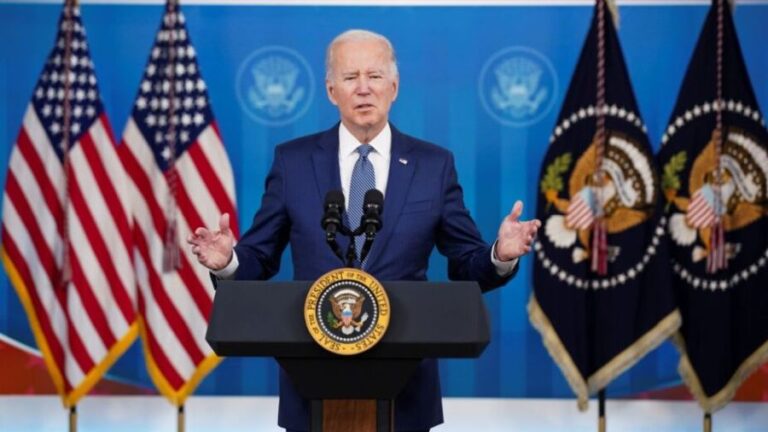The EU’s Declaration of Economic & Financial War Against Russia Might Backfire
This should terrify those countries that are resisting the US’ ongoing reimposition of its declining unipolar hegemony but it might also backfire if they cooperate more closely together in accelerating the ongoing global systemic transition towards multipolarity so long as their leaders continue successfully resisting US pressure.
There shouldn’t be any illusions left about the US-led West’s weaponization of economic and financial instruments after the French Finance Minister just declared that the EU will wage “total economic and financial war” against Russia. This should terrify the world because it means that comparatively less stronger countries than the Eurasian Great Power will inevitably end up in its crosshairs too with time. They’ll be targeted just like Russia is if they dare to defy the US-led West’s hegemonic demands.
President Putin announced his country’s special operation in Ukraine late last week on the immediate pretext of protecting the indigenous Russian people of the Donbass Republics that Moscow recognized days prior, though the grand strategic goal is to ensure the integrity of its national security red lines that NATO crossed in that country. Failure to act when it did would have eventually led to the neutralization of Russia’s nuclear second-strike capabilities and a forthcoming conventional attack against it by NATO.
Russia isn’t the only country threatened by the West since China and Iran are also among its top targets as well. Those countries, though, have long been regarded as posing a challenge to America’s declining hegemony which is why it surprised many when Ethiopia of all states recently ended up in their crosshairs as well. That country used to be a stalwart Western ally but was punished for its government’s pragmatic balancing act between the American and Chinese superpowers.
The US’ attempt to reimpose its declining unipolar hegemony onto all others means that Ethiopia won’t be the last Global South country to be targeted by it, not to mention the last hitherto existing American ally. Any country that resists Washington’s attempts to divide the world into so-called “Chinese-led authoritarian” and “American-led democratic” blocs will bear the brunt of it’s the US-led West’s multidimensional Hybrid Wars against them, especially economic, financial, and information warfare.
The EU has already fallen completely in line with its American patron when it comes to Russia, which implies that it might soon do the same vis-à-vis China upon demand as well. The Gulf States that have recently moved a lot closer towards that two Eurasian Great Powers could soon find themselves to be the US-led West’s next targets, though the pivotal leverage that they exert over the global energy market might make Washington second guess the wisdom of provoking them too much.
ASEAN will have to walk a careful line between the US and China in the coming future since it can’t afford to cut off the People’s Republic with whom its countries trade so much. That Southeast Asian bloc is also party to the Regional Comprehensive Economic Partnership (RCEP) alongside China and several other countries so it remains to be seen what effect American pressure could have on that platform. If those countries don’t submit to the US, they might soon be targeted by infowars at the very least.
All of Africa already saw what happened to Ethiopia so some of the weaker countries that are in neo-colonial relationships with the West obviously won’t dare to defy their patrons but those that are more confident with flexing their strategic autonomy might wager that it’s better to take a chance at replicating that Addis Ababa’s balancing act in pursuit of their national interests. After all, Ethiopia also set a shining example that African countries can indeed resist such US-led Western Hybrid War pressure.
India and Brazil’s principled neutrality amidst Russian-NATO tensions might see both of these multipolar Great Powers and fellow BRICS members become the next targets of US-led Western pressure campaigns. That’s already been happening though even before this as American media began to report very critically about issues inside those countries that their governments regard as their purely internal affairs that foreigners shouldn’t even comment upon.
It’s always been among America’s grand strategic priorities to break BRICS, which had largely become moribund in recent years anyhow but showed some signs of revival over the past year, so these scenarios are to be expected. The consequences of their success, which appears more likely in the Brazilian case than the Indian one, could be far-reaching, which is why it’s important for them hold firm in the face of such pressure.
That’s not to say that Bolsonaro is the best leader for Brazil, but just to point out that those policymakers behind him who are the ones truly responsible for their government’s principled neutrality in these circumstances must ensure that they aren’t replaced if he’s deposed through democratic (albeit likely US-indirectly-supported) means after the next election. The optimal scenario is for Lula who whoever else might enter into office after him to retain those experts at all costs.
Returning to the lead-in topic of this analysis, however, the EU’s declaration of total economic and financial war against Russia is also a declaration of the same against the entire world. It should terrify those countries that are resisting the US’ ongoing reimposition of its declining unipolar hegemony but it might also backfire if they cooperate more closely together in accelerating the ongoing global systemic transition towards multipolarity so long as their leaders continue successfully resisting US pressure.







